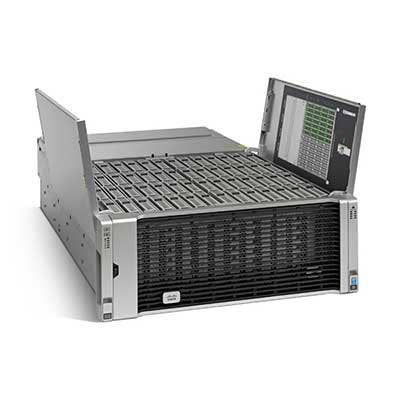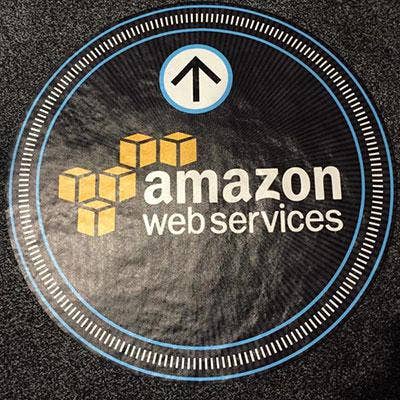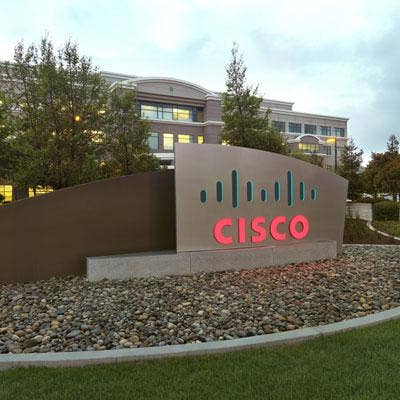CRN Exclusive: SwiftStack CEO Talks New Cisco Storage Partnership, AWS And Why Channel Partners Should Be Pumped

SwiftStack Teaming With Cisco
SwiftStack is integrating its object storage technology with Cisco systems, which SwiftStack CEO Don Jaworski says will boost Cisco's storage play and help channel partners transition customers to the cloud.
"The other guys look like legacy storage vendors compared to us," said Jaworski, in an interview with CRN at Cisco Live in Last Vegas this week. "They come in and sell you three years' worth of stuff. We're coming in with Cisco and saying, 'You can start small and then grow. Pay as you grow, scale as you grow just like Amazon does … I would be excited if I was a channel partner."
SwiftStack is integrating its new SwiftStack 4.0 open-source platform with Cisco systems such as Metapod OpenStack-based software and Cisco Unified Computing System (UCS).
Jaworski talked to CRN about new recurring revenue opportunities for the channel and why competitors like Amazon are realizing that hybrid cloud is the way to go. "If you look recently at AWS and their whole file system announcement, they're starting to say hybrid cloud. It freaked me out," said Jaworski. "You never talked hybrid cloud at Amazon."

What makes SwiftStack technology a differentiator for channel partners to sell?
The other guys look like legacy storage vendors. They come in and sell you three years' worth of stuff. We're coming in with Cisco and saying, 'You can start small and then grow. Pay as you grow, scale as you grow, just like Amazon does.'
We're also super-flexible and easy to manage – you can grow however you want to grow. Third is we're open source-based, but with enterprise features that help you manage it and integrate it into your environment. Fourth, we call it bimodal, we work for the modern application and the legacy application – same data footprint. That's how we're different.
We are the only object storage system that was built from the ground up, leveraging an open-source project that essentially allows you to pay as you grow.

If I'm a Cisco channel partner, why should I be pumped about Cisco and SwiftStack?
If I'm a channel partner, I've spent a lot of my time building unique relationships with my customers. Those customers really want to get to that new world of leveraging the cloud. This can provide a way for that partner to go to their customer and start with something very specific -- like a backup application or a data application -- that they want to turn into a cloud and then deploy that into a cloud.
The partner is now bringing strategic value to that customer because that's just the first step down the path of that customer's push into the modern architecture – to the cloud.

Can you give an example of how partners can start selling this?
There may be some customers that really want to get to the modern architecture -- get to the cloud -- but not sure how to do it. Say they have a big data footprint of backup or big data footprint of images or DNA sequencing. Essentially partners can go in and sell a Cisco-SwiftStack solution to solve that problem as their first step into this crazy world of cloud. So now they have this cloud data footprint based on Cisco infrastructure and SwiftStack software on top, and from there partners can start talking about the other services they can layer on.

Where does SwiftStack blend best with Cisco solutions?
Today it blends most nicely with Cisco Metapod, soon to be Metacloud, which is the compute side of the cloud, but also especially on the 3260 Cisco UCS Chassis. It's a new high density chassis available to resellers that just launched this year. It’s a perfect platform to put the software on, to go after workloads like backload, or genome sequencing, or the media repositories.

Why are enterprise customers going to go with Cisco-SwiftStack compared to, say, Amazon?
If you look recently at AWS and their whole file system announcement, they're starting to say 'hybrid cloud.' It freaked me out. That was, you know, you never talked 'hybrid cloud' at Amazon. But I think that's because an enterprise customer today is saying, 'Am I going to put everything in a private cloud? Am I going to put everything in a public cloud?' -- no, of course not.
So Cisco will bring their strengths to the table. Their security strengths. Their IoT strengths. Their networking strengths and end-to-end networking play … and Cisco can help them figure a lot of that out already, compared to other competitors.

Why are customers moving towards a hybrid cloud?
Customers are standing back and saying, 'How do I leverage these [public and private clouds] to meet my requirements or manage my data? Do I have custody of my data? Is my data local? Is that data going to move and will I have to pay transport costs? Can I leverage the crazy elastic world of the public cloud while keeping and maintaining my golden apps and data that lives behind the firewall in my private cloud?' I'm not sure it's going to be flip-the-switch hard, one way or the other – private or public. I think Google and Microsoft have really figured that out.

How will this new SwiftStack-Cisco solution be sold?
Today it's sold in chunks of 120 terabytes. That might sound like a lot, but the greater scheme of large enterprise data footprints, it's actually fairly small. It roughly represents the size of a Cisco UCS server that will be deployed into a cluster.
Most resellers want to be able to offer the same thing that the cloud guys do, which is buy a little right now and then as you grow we'll charge you more. You're then paying for what you're consuming, not paying for what you might grow into in the future.

So what's the biggest advantage for channel partners?
The cool thing for the channel partners, is that building this type of cloud yourself can be very complicated and most of them would rather focus their efforts higher up in the stack and help customers at the top level applications – ERP, CRM, data protection – those bigger initiatives. Our stuff is infrastructure, but none the less, very vital infrastructure because it's how you then get to that new architecture that will roll new things out. Every time you need 120 terabytes more, you would buy as you grow.

So this can be the first step for a partner to get their customer into the cloud?
If I'm a partner and I'm scared of the cloud and wondering how I'm going to fit into this thing, this can give you a practical way to start with your customer to deploy your first step as a cloud. It's not trying to build out everything all at once. I would be excited if I was a channel partner.
It's like, 'Okay, I can start here and do backup or tackle these two apps and then work with the customer and Cisco and make it bigger and take on more chunks of a cloud plan.' Because a whole big strategic, 'Turn my entire IT shop into a cloud' -- that's hard to do.

Through what method do you sell this?
We charge on an annual license. So it's actually recurring revenue similar to a way cloud would be. It really is OpEx and a lot more IT organizations are looking to channel partners to move more of their costs to OpEx. It then matches the services that the reseller is then providing at the same time – they're providing the infrastructure as a OpEx, as well as their services as an OpEx. It blends really well with how more organizations are trying to fund their IT projects.

Why did Cisco select SwiftStack to be the object storage provider to all of their partners and customers?
We and our investor gang firmly believe we have the architecture to be the standard when it comes to cloud-based object storage. If you want to build a private cloud, a data cloud and you want make it hybrid – have it in the public-private cloud and manage it back and forth – we feel strongly that we have the architecture to do that. We're in the position to win that battle.
If you look at Cisco, they want to be that single source. Cisco wants to produce everything the customer needs. So the most important thing for Cisco is to own that whole solution, that relationship with the customer. For them to partner with SwiftStack, we can bring something unique to the table that helps them in that drive to own that space.
We're bringing something to the table on the data side that fits nicely with their solutions that they don’t sell today.

What does SwiftStack get out of the Cisco partnership?
For us, we get to leverage all those resources they have that we couldn’t possibly bring to bear. When a customer says to us, 'I want to get to that next crazy modern world' – a company of 60 can't help them do that by ourselves.
We need a partner like Cisco to be able to actually bring those kind of resources to that customer. We get to channel partners via partnerships like Cisco because we ourselves couldn’t provide them [with] what they need.